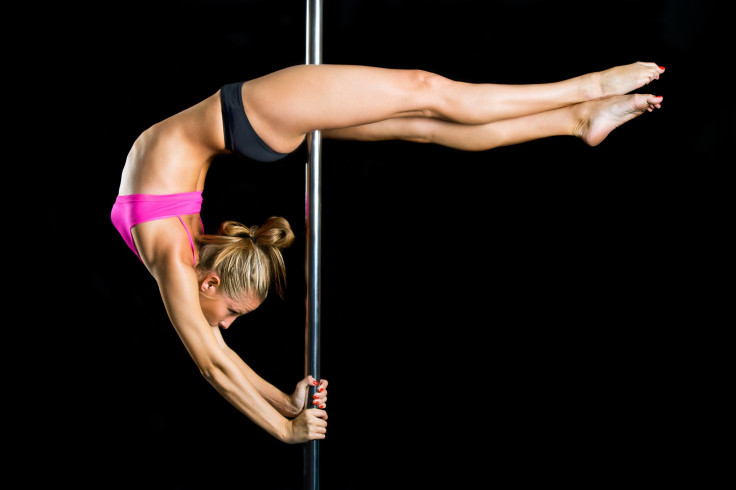Forensic Scientist Turned Pole Dancer Explains Why It’s 'Addicting' And Changed Her Life

Thirty-year-old Amy Cowles is a forensic scientist teaching fellow at Keele University in the UK during the day, but in the evenings and weekends she’s picked up pole dancing as a new hobby.
Now the enthusiastic scientist has been winning competitions after getting into pole dancing about five years ago as a way to exercise; she recently won the Semi-Pro Instructor category at Miss Pole Dance UK. Pole dancing is responsible for a major confidence boost, she says. “Pole is incredibly addictive,” Cowles told the NY Daily News. “Every time you succeed with a new move, you get such a buzz and a real confidence boost, and you can see yourself progressing, getting stronger, or more flexible.” She adds that she is “a completely different person” than before she started.
- Amy Cowles (@AmyCowles) October 5, 2012 Pole in the park was awesome - look, I'm flying! :) pic.twitter.com/ra3SiJuh
- Amy Cowles (@AmyCowles) September 7, 2012Though it takes a long time to build up the muscle and strength to be able to twirl around a pole, Cowles says it’s worth it. “If you master a move you found impossible when you first tried it a few weeks ago, then you can see progress, which is really motivating!” she told the Daily News.
Cowles said when people first found out about her hobby, a few raised their eyebrows at the notion. But the reality is that pole dancing — though seemingly promiscuous — is a great way to exercise. On top of building muscles, pole dancing gives you a solid skill, unlike just working out on exercise machines. Pole dancing also develops your balance and kinesthetic awareness, or your body’s ability to calculate where you are in 3D space in relation to other objects. Essentially, it could make you less clumsy — and if Cowles is any indication, more confident.
Published by Medicaldaily.com



























